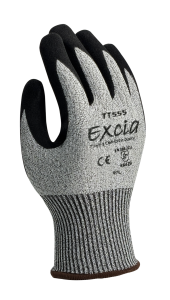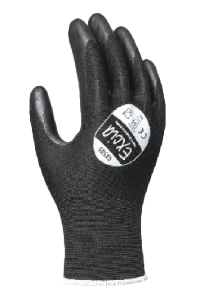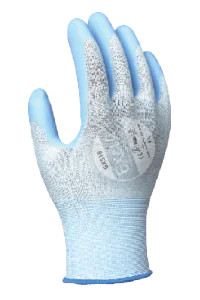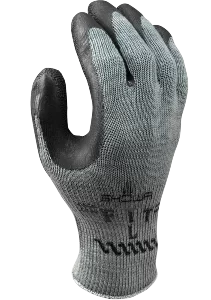Mechanic Gloves for Machinery Industry
The machinery industry, a cornerstone of the industrial sector, encompasses the design and maintenance of various machinery types, including heavy, precision, and industrial machinery. In this dynamic environment, workers face various hazards, such as exposure to harmful particles, chemical splashes, and the risk of cuts from sharp objects. Therefore, prioritizing safety is crucial, and this involves utilizing top-notch protective gear, such as mechanic gloves or mechanical gloves. Safety gloves suppliers provide specialized equipment, including machinery industry series gloves and chemical-resistant gloves, tailored to the unique demands of the machinery industry.
Why Workers Need Mechanical Gloves in Machinery Industry
Workers need mechanical gloves due to the risk of exposure to hazardous materials, and poor-quality protective wear can limit their productivity and safety.
Hazardous Chemicals, Liquids, and Oil
➤ Dealing with machines usually in contact with black oils, lubricants, aerosol spray, gear oil, and chemicals liquids.
Rough and Sharp-Edged Objects
➤ Exposed to risks of injuries due to handling machinery works.
Hand Fatigue
➤ Long hours of working can cause discomfort in hands especially when handling heavy machines or objects.
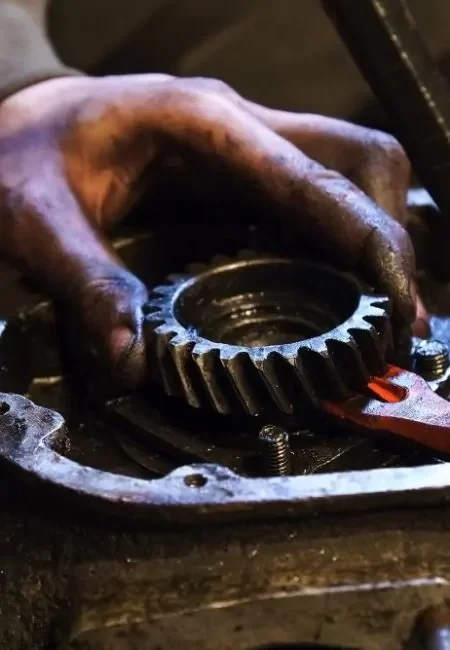

Why Choose Our Mechanic Gloves As Your Solutions
With industry-leading material technology, anatomical design and rigorous testing standards, we engineered user-centred product designs that reflect the seamless connection between the equipment, work conditions, and workers’ performance, directly tackling the challenges and ensuring work efficiency.
Enhanced Grip Performance
➤ The excellent grip performance of our gloves allows less force required to handle machine parts or objects, thus increasing work efficiency.
Improve Productivity
➤ Ergonomic design of protective wear ensure comfort and alleviates stress which ultimately improves machinery workers’ performance even in long hours.
Ultimate Protection
➤ Superior quality materials used to make our protective wear provide superior protection against chemical penetration and permeation.
Standards & Quality
➤ Our protective wear complies with CE standards.
Recommended Mechanic Gloves for Machinery Industry
Frequently Asked Questions Regarding Machinery Gloves
What is a mechanic glove?
A mechanic’s glove is a protective glove designed for mechanics and other tradespeople who work with their hands in the mechanism industry. They typically offer features like grip to handle tools, abrasion resistance to protect from scrapes, and padding to cushion impacts. Some mechanical gloves may boast cut or heat resistance depending on the job’s specific needs.
What are mechanical gloves worn for?
Mechanical gloves are worn for various hand protection purposes during mechanical work. This can include shielding from cuts, scrapes, burns, and even chemicals depending on the glove type. They also improve grip for handling greasy tools and rough materials, and some provide padding for comfort and impact absorption.
What types of protection do mechanical gloves have?
Mechanical gloves prioritize protecting your hands from physical hazards during tasks. Here’s how they address common concerns:
Cut protection: Many gloves incorporate cut-resistant materials like Kevlar or HPPE (high-performance polyethene) fibres within the lining. These offer varying levels of defence against cuts, usually rated from 1 to 5 (highest) according to EU standards.
Chemical protection: Certain coatings like nitrile rubber safeguard against oils, grease, and various chemicals. However, the specific chemicals a glove protects against depending on the coating material.
Grip: Maintaining a good grip on tools and materials is crucial for safety and efficiency. Many mechanical gloves achieve this through textured coatings or sandy nitrile finishes.
What are safety gloves for mechanical work made of?
Safety gloves for mechanical work come in a variety of materials, each offering distinct advantages:
Leather: Classic choice for durability, heat resistance, and good grip, although it can be stiff and may require a break-in.
Synthetic materials: Neoprene, nitrile, and Kevlar are common options. They offer good flexibility, water resistance, and sometimes cut or puncture resistance, but may not be as heat resistant as leather.
Cotton canvas: Affordable and comfortable, often with a latex coating for grip and waterproofing. However, they may need to be more durable for heavy-duty tasks.
Hybrids: Many gloves combine these materials, for instance, leather palms with breathable backs for a balance of protection and comfort.
How thick is a durable glove for mechanics?
A durable glove for mechanics varies in thickness but typically ranges from 4 to 8 mils. This measurement refers to thousands of an inch (1 mil = 0.001 inches). For example, thinner gloves (around 4 mils) offer better dexterity for intricate tasks while thicker gloves (up to 8 mils) provide more protection from punctures and abrasions for heavy-duty work.
In what types of use conditions can mechanical gloves be used?
Mechanical gloves come in handy across various dryness, oiliness, and wetness conditions, ensuring hand protection throughout your tasks. Here’s a breakdown of their use cases:
Dry conditions: General-purpose gloves with cotton or synthetic liners and textured coatings offer excellent protection for handling dry materials like sandpaper, wood, or cardboard. They provide good grip and dexterity for tasks like assembling products, using tools, or driving.
Oily conditions: When working with lubricants, oils, or grease, nitrile-coated gloves become your best friend. Nitrile’s high oil resistance prevents oil from soaking through and compromising the grip. These gloves are essential for mechanics, machinists, or anyone handling oily machinery.
Wet conditions: Waterproof materials like latex or neoprene are ideal for wet environments. They create a barrier against water, keeping your hands dry during tasks, like washing dishes, cleaning, or working outdoors in the rain.

